To help you get to grips with the various venues involved in Euro 2020, Goal brings you everything you need to know
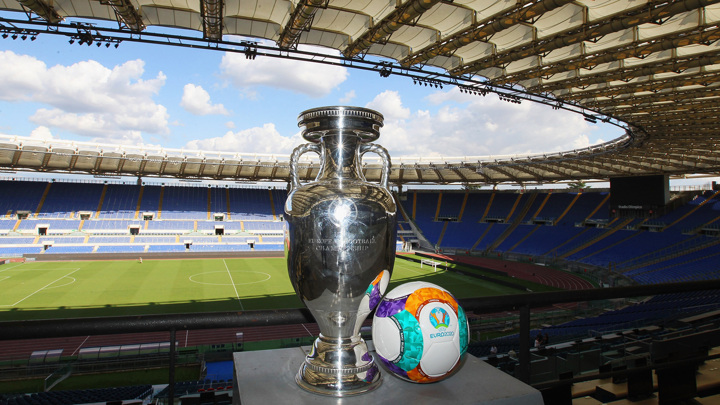
Euro 2020 will be spread across Europe as UEFA celebrates the 60th anniversary of their prestigious international tournament.
Unlike previous editions where one, maybe two, countries shouldered the burden, a total of 12 cities in countries all across the continent will share the hosting duties.
It is an unprecedented move, intended as a once-off, and usual service will resume in 2024 with Germany serving as the sole host nation.
UEFA president Aleksander Ceferin said: "There is great pleasure in being able to bring EURO 2020 to so many countries and cities, to see football acting as a bridge between nations, and to carry the competition closer to the fans, who are the essential lifeblood of the game."
Ahead of the tournament, Goal brings you everything you need to know about all 12 venues, including where they are, capacities, which games they'll host and more.
Johan Cruyff Arena | Amsterdam | Netherlands
Capacity: 54,990
Games: Group stage & last 16 (four games)
Year built: 1996
Address: ArenA Boulevard 1, 1101 AX Amsterdam, Netherlands
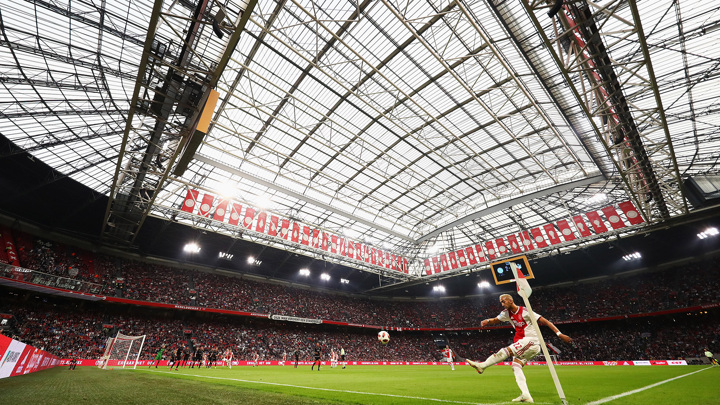
The Johan Cruyff Arena will play host to three matches in Group C as well as one of the tournament's last 16 games.
Located in the Dutch capital Amsterdam, it is the home stadium of Eredivisie side Ajax and the Netherlands national team, who have been playing games at the venue since it opened in 1996.
The stadium is equipped with a retractable roof and previously hosted five matches at Euro 2000, as well as being the stage for the 1998 Champions League final.
Olympic Stadium | Baku | Azerbaijan
Capacity: 68,700
Games: Group stage & quarter-final (four games)
Year built: 2015
Address: Heydar Aliyev, 323, Baku, Azerbaijan
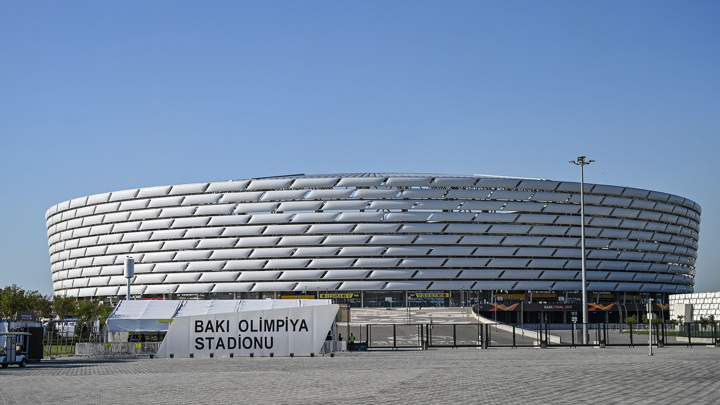
Baku's Olympic Stadium will be one of the venues for games in Group A as well as one quarter-final showdown.
Built for the 2015 European Games, the Olympic Stadium will hold fond memories for Chelsea supporters as the scene of their 2019 Europa League final triumph over Arsenal.
The 68,700-seater stadium is situated near Lake Boyukshor, which is the second largest lake in Azerbaijan.
San Mames | Bilbao | Spain
Capacity: 53,332
Games: Group stage & last 16 (four games)
Year built: 2013
Address: Rafael Moreno Pitxitxi, s/n, 48013 Bilbao, Bizkaia, Spain
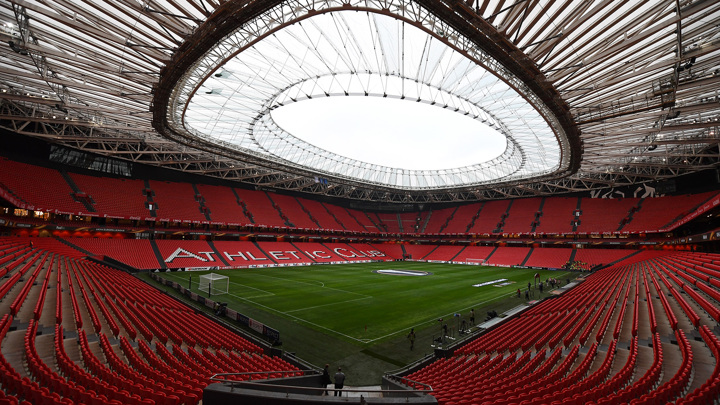
San Mames in Bilbao will play host to a total of four matches at Euro 2020: three matches in Group E and one game of the last 16.
Home of La Liga side Athletic Club, San Mames was built on the site of the old San Mames, a ground that was affectionately referred to by locals as La Catedral (The Cathedral).
Situated in the Basque region of northern Spain, it has, like many modern stadiums, hosted a variety of concerts and other sporting events.
Arena Nationala | Bucharest | Romania
Capacity: 55,600
Games: Group stage & last 16 (four games)
Year built: 2011
Address: 37 Basarabia Blvd., Sector 2, Bucharest, Romania
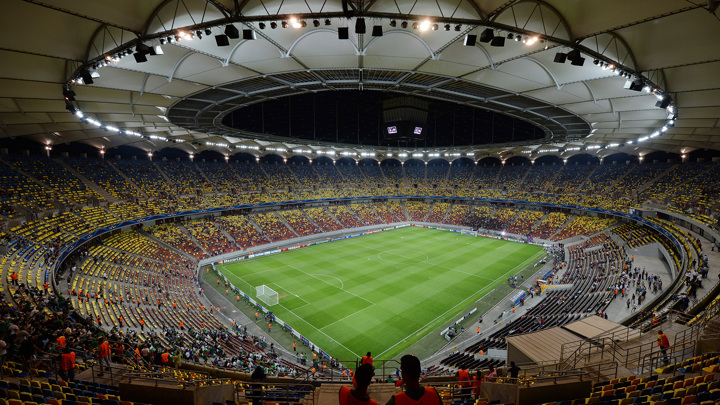
Romania's Arena Nationala will share hosting duties in Group C with the Johan Cruyff Arena as well as being the venue for one last 16 game at Euro 2020.
The stadium is located in the Romanian capital Bucharest and is home to Steaua Bucuresti as well as the Romania national team.
In 2012 it was the venue for the Europa League final between Atletico Madrid and Athletic Club.
Puskas Arena | Budapest | Hungary
Capacity: 67,889
Games: Group stage & last 16 (four games)
Year built: 2019
Address: Istvanmezei ut 3-5, 1146 Budapest, Hungary
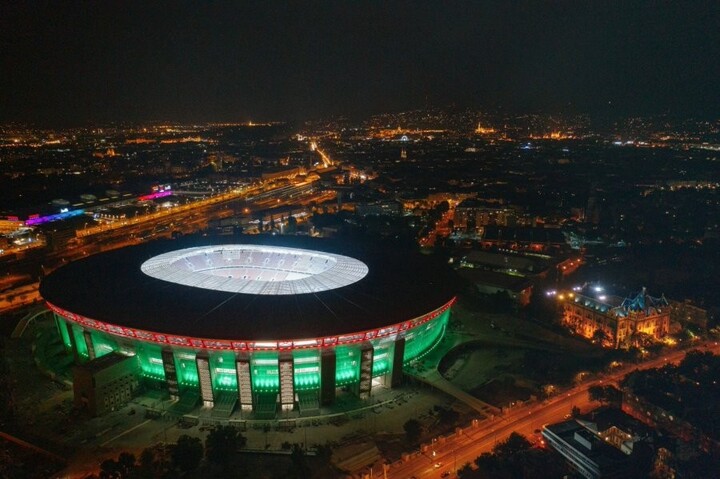
The Puskas Arena in Budapest will be the newest stadium at Euro 2020 with construction concluding in 2019. It will host three games in Group F and one of the last 16 encounters.
Named after Hungarian football legend Ferenc Puskas, it is situated on the site of the former Ferenc Puskas Stadium, which was demolished in 2016.
It will be home to the Hungary national team, but it is unclear whether it will house any club teams.
Parken Stadium | Copenhagen | Denmark
Capacity: 38,065
Games: Group stage & last 16 (four games)
Year built: 1992
Address: Per Henrik Lings Alle 2, DK-2100 Osterbro, Copenhagen, Denmark
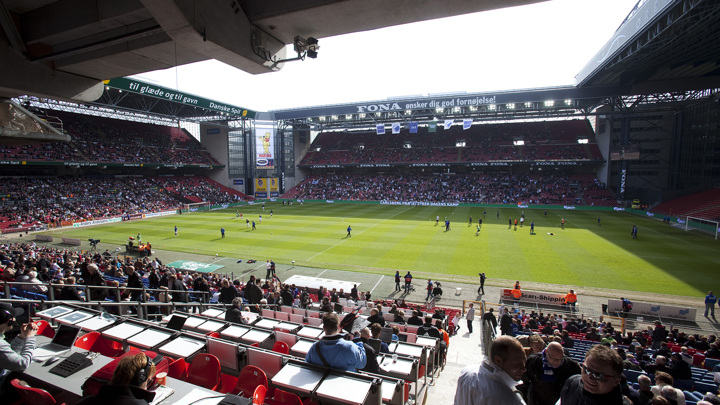
Parken Stadium in Copenhagen will host three games in Group B and a last 16 clash.
Home of the Denmark national team and FC Copenhagen, Parken is one of four 20th century stadiums to host games at Euro 2020.
With a seating capacity of just over 38,000, it is the smallest host venue at the tournament. However, it does boast a Michelin star restaurant!
Aviva Stadium | Dublin | Ireland
Capacity: 51,700
Games: Group stage & last 16 (four games)
Year built: 2010
Address: 62 Lansdowne Road, Dublin 4, Dublin, Ireland
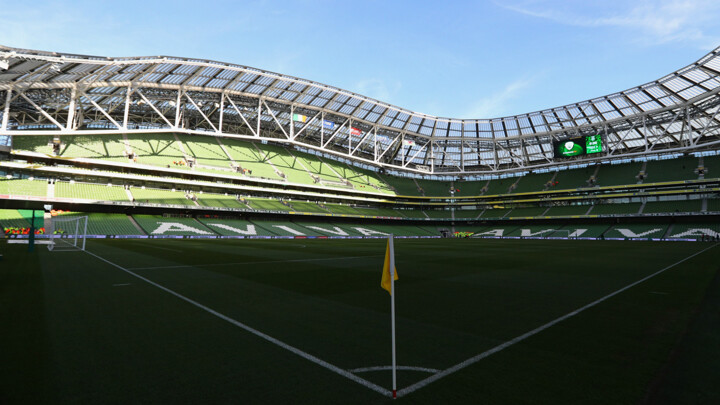
The Aviva Stadium in Dublin will share hosting duties with Bilbao for games in Group E by staging three matches, as well as one last 16 contest.
Home to the Republic of Ireland national team and the Irish rugby union team, the Aviva Stadium can house over 50,000 spectators and previously hosted the 2011 Europa League final.
Still referred to by some locals simply as Lansdowne Road, the Aviva Stadium is also the venue for the annual FAI Cup final, as well as occasionally hosting American football matches and concerts.
Hampden Park | Glasgow | Scotland
Capacity: 52,063
Games: Group stage & last 16 (four games)
Year built: 1903 (renovated 1999)
Address: Letherby Drive, Mount Florida, Glasgow, G42 9BA, Scotland
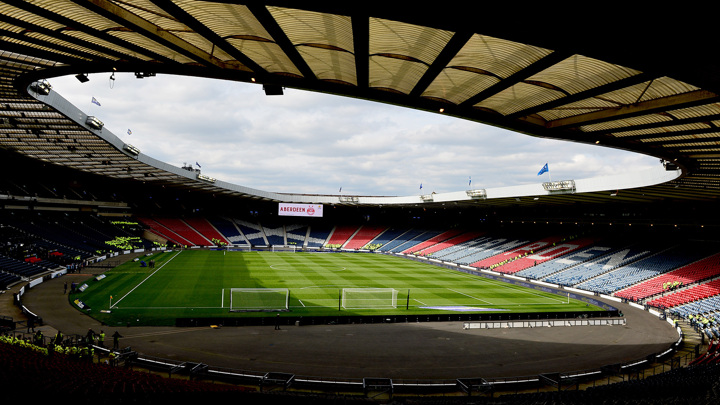
Hampden Park in Glasgow will host three matches in Group D and one last 16 game.
The oldest stadium to be used at Euro 2020, Hampden Park is the home of football in Scotland, playing host to the national team as well as being the venue for various national cup finals.
It has been the stage for three European Cup finals (1960, 1976 and 2002), two Cup Winners Cup finals (1962 and 1966) and the 2007 UEFA Cup final. It was also used for football games at the 2012 Olympics.
Wembley Stadium | London | England
Capacity: 90,000
Games: Group stage, last 16, semi-finals & final (seven games)
Year built: 2007
Address: London, Wembley HA9 0WS, United Kingdom
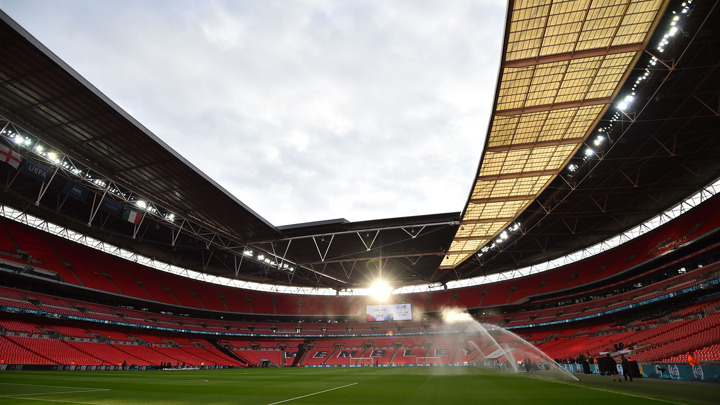
Wembley will host a total of seven matches at Euro 2020 including both semi-finals and the final. It will also be the scene of three games in Group D, where it shares hosting duties with Scotland's Hampden Park.
The London venue was initially only supposed to host the semi-finals and final, but was assigned an extra four games following the exclusion of Brussels as a host city.
Rebuilt in 2007, it is one of the biggest football stadiums in the world and second only to Barcelona's Camp Nou in terms of Europe's biggest arenas.
Allianz Arena | Munich | Germany
Capacity: 70,000
Games: Group stage & quarter-final (four games)
Year built: 2005
Address: Werner-Heisenberg-Allee 25, 80939 Munich, Germany
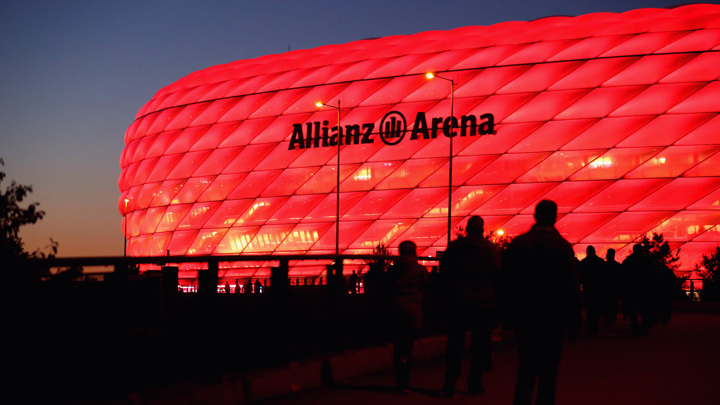
Bayern Munich's Allianz Arena is Germany's representative at Euro 2020 and will play host to three games in Group F alongside Budapest's Puskas Arena. It will also host a quarter-final game.
As well as occasionally staging Germany games, the 75,000-seater was one of the country's venues for the World Cup in 2006 (hosting six matches) and in 2012 it was the venue for the Champions League final.
Stadio Olimpico | Rome | Italy
Capacity: 72,698
Games: Group stage & quarter-final (four games)
Year built: 1937 (renovated in 1953 & 1990)
Address: Viale dei Gladiatori, 00135 Rome, Italy
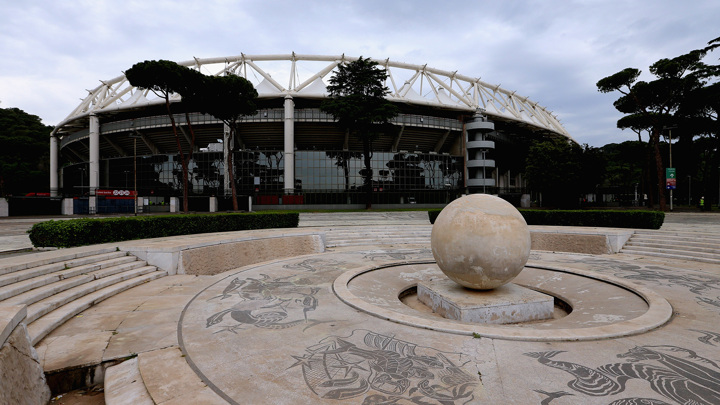
Stadio Olimpico in Rome, Italy will be the venue for one quarter-final game at Euro 2020 as well as three matches in Group A (sharing duties with Baku's Olympic Stadium).
Home of Serie A giants Roma and Lazio, Stadio Olimpico has a storied history in football.
It has been the venue for the final of the European Cup/Champions League on four occasions (1977, 1984, 1996 and 2009) as well as hosting the 1980 European Championship final and the 1990 World Cup final.
Along with Parken Stadium, Hampden Park and the Johan Cruyff Arena, Stadio Olimpico represents one of four 20th century stadiums being used.
Krestovsky Stadium | Saint Petersburg | Russia
Capacity: 68,134
Games: Group stage & quarter-final (four games)
Year built: 2017
Address: Futbol'naya Alleya 1, Krestovsky Island, Saint Petersburg, Russia
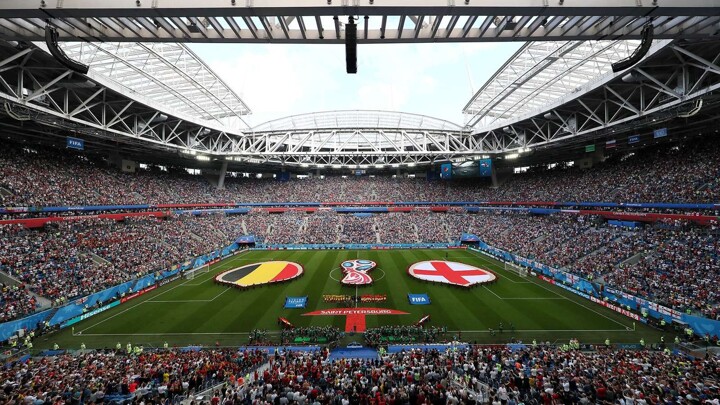
The Krestovsky Stadium in Saint Petersburg, Russia will host one quarter-final match at Euro 2020 and it will also be the venue for three games in Group B.
One of the newest stadiums of the 12 being used by UEFA, the Krestovsky Stadium was built in anticipation of the 2018 World Cup, where it hosted seven matches, including the third-place play-off.
It is home to Russian giants Zenit and the Russia national team also play there on occasion.
